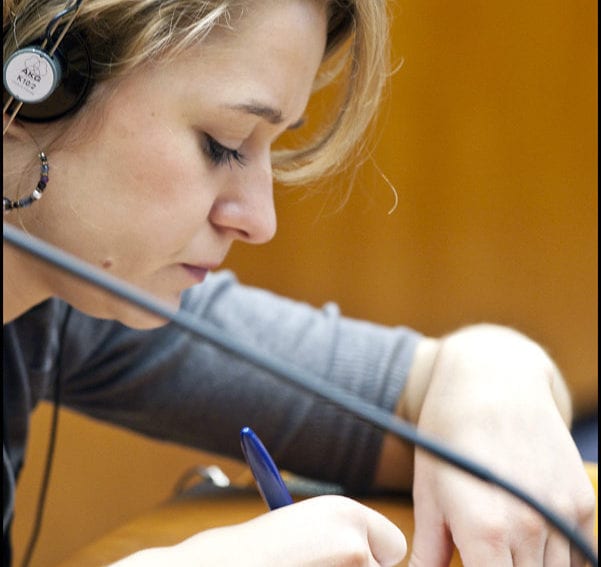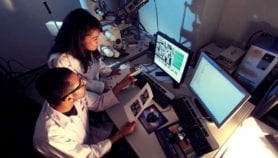By: Kaz Janowski
Send to a friend
The details you provide on this page will not be used to send unsolicited email, and will not be sold to a 3rd party. See privacy policy.
Communicators and journalists complement one another and should work together to promote public engagement with scientific knowledge.
"Journalists giving a press conference to journalists about journalism" is how Pekka Isosomppi, press officer for the Finnish Embassy in London, opened last month's panel discussion on the future of science journalism. His remark received a hearty laugh from the audience, breaking the ice in the reception room of the Finnish ambassador's official residence in Kensington Palace Gardens.
But his choice of words, particularly the conspicuous absence of the word science, set me, and perhaps others, wondering about the forthcoming 8th World Conference of Science Journalists to be hosted by Finland in Helsinki next month (24–28 June).
Are science journalists indistinguishable from other species of journalist? And where does science communication come into the equation.
Science journalism in 'crisis'
In her address to the panel, Connie St Louis, president of the Association of British Science Writers, outlined the features of a general crisis in science journalism: a loss of funding and interest while, on the other hand, science communication is receiving increasing attention.
It is worth noting that no such crisis is thought to exist in the global South, according to the results of a SciDev.Net report published in January. However, even if it is not a crisis, something serious does seem to be going on with science journalism globally.
Two other panellists asserted that investigative science journalism based on original material is in decline. A 2011 independent review of the accuracy and impartiality of the BBC's science coverage supports this view by noting that there is an overreliance on press releases when broadcasting news items about scientific research. [1]
St Louis sees a tension between what she calls true science journalism and science communication. As Pallab Ghosh, a BBC science correspondent and another panellist at the event, said, the job of science journalists is to ask awkward questions, not to act as translators of or cheerleaders for science.
But is this a useful way of understanding the relationship between the two fields? I would suggest that they are, in fact, complementary.
Understanding communication
Science communication aims to communicate science, of course. But it also endeavours to understand the process of communication better — analysing and critiquing the entire process as well as identifying the best means of communicating to given audiences.
There is sometimes an implied or explicit view that it is a form of science propaganda. However, this is no more valid than seeing science journalism as equivalent to sensation-seeking journalism.
Science journalists can be wooed and seduced by the appeal of a dramatic story, bowing to easy fame and money, just as science communicators can be wooed and seduced by the appeal of easy money from funders who want certain stories to be put across or certain technologies taken up. The possibility that this can happen does not define either profession.
I see both professions as primarily defined by their commitment to science. In the notes for the MSc in science communication at Imperial College London, written by course leader Felicity Mellor, we find the following: "Science journalism is first and foremost a form of journalism".
Is this a valid statement?
We need little reminder that the aim of journalism is to write articles that people will read. Readers are well known to be attracted to sensation: they want to be astounded and even shocked. Misbehaviour on the part of governments, corporations and individuals is an appealing target for journalists. But the 'facts' they uncover are not necessarily systematic or of practical value.
Science journalism, on the other hand, normally stands apart from this kind of writing, aiming to establish the state of knowledge in a given scientific field at a given point in time. Like science itself, science journalism does not assume that there are definitive facts out there, but accepts that there is only a continuing process of building understanding.
When Ghosh remarked, when referring to investigative science journalists in his address, "In God we trust; everyone else we check out", he could easily have said: "Everything else we check out".
An ideal partnership
Science journalism and science communication can be seen as a pairing, whose union and complementary roles are necessary for producing better engagement with science. It is not a question of which should be funded; both are vital.
A partnership between the two professions could help millions of ordinary people assess the details and implications of new knowledge and technologies.
A 2011 poll in the United Kingdom highlighted the gap between scientific knowledge and the man or woman in the street: it found that 75 per cent of the population do not understand the scientific peer-review process, a cornerstone of scientific research. [2] Surely help is needed here — from both science journalists and science communicators — to inform the public by working together with the wider scientific community.
And now for a genealogical analogy. I think we should see science journalism and science communication as offspring of the scientific endeavour itself. This makes a union between them one between cross-cousins: descended from the same ancestors and brought back together. Theirs can and should be a happy and productive union.
This bodes well for a productive conversation at the Helsinki conference — as long as we keep our sights firmly fixed on science as the tie that binds science communication and science journalism together.
Kaz Janowski
Editor, SciDev.Net
References
[1] BBC Trust BBC Trust review of impartiality and accuracy of the BBC's coverage of science (BBC, July 2011)
[2] Ipsos MORI Public Attitudes to Science 2011 (Ipsos MORI, May 2011)














